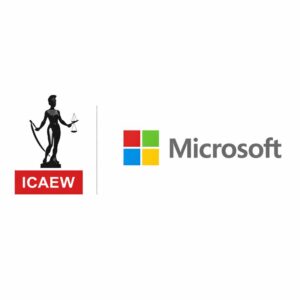Microsoft Copilot driving AI-powered transformation in tax and audit for accounting firms

Accounting firms are increasingly turning to Microsoft’s AI-powered Copilot to tackle the rising complexity of tax compliance and audit workflows. Embedded within familiar Microsoft 365 apps such as Excel and Teams, Copilot promises to automate repetitive tasks. It accelerates data processing. It also improves regulatory adherence. These are critical factors in the high-pressure world of tax and audit services.
Revolutionising tax compliance and advisory with Microsoft Copilot
Tax functions bear the brunt of evolving legislation and mounting client demands. PwC UK has pioneered an AI-powered tax assistant. It leverages Microsoft Copilot to provide real-time updates on tax rules. It also offers insights into case law. This tool supports over 2,000 staff. It cross-references vast internal databases to ensure accuracy and transparency. It generates detailed references to bolster client confidence in tax advisory services.
Wolters Kluwer’s Copilot extension for CCH Axcess allows tax professionals to use natural language queries. They can summarise client communications, retrieve client details, and draft engagement letters. The result: significantly streamlined administrative workflows that free up tax specialists to focus on strategic tax planning and advisory.
EY’s Tax Copilot program further exemplifies AI’s promise. EY uses Microsoft’s Azure OpenAI Service and Power Platform to empower its global tax workforce. This empowers them to develop tailored low-code solutions. These solutions enhance efficiency across tax reporting and payroll operations. These efforts underscore a broader industry trend. AI is being leveraged in tax compliance to navigate regulatory complexity. It also elevates client service.
Accelerating audit processes with AI assistance
Audit teams are benefiting equally from Copilot’s ability to automate preparatory audit tasks. BDO Colombia’s BeTIC 2.0 virtual assistant is built using Microsoft Copilot Studio. It automates payroll and finance processes. The automation reduces operational workloads by 50% and improves internal process efficiency by 78%. This practical application shows how AI can cut down manual effort and sharpen focus on higher-value audit activities.
Grant Thornton UK has reported success from piloting Copilot in audit report drafting. They noted a 40% time reduction. This allowed auditors to spend more time on risk assessment and client consultations. Meanwhile, EY’s AI-powered analytics platform has halved manual data validation time, boosting both audit speed and accuracy.
Security and human oversight remain paramount in AI-powered accounting
Handling sensitive client data means security is critical. Copilot operates within Microsoft 365’s robust security framework, offering encryption, multi-factor authentication, and detailed audit trails. Importantly, these AI tools embed up-to-date regulatory frameworks to aid compliance in tax and audit processes.
Yet experts caution against over-reliance on AI. PwC cybersecurity expert James Chen emphasizes that Copilot should augment professional judgement. It should not replace it, especially when tackling complex tax legislation. This is also true for audit judgements.
Integration challenges and adoption in accounting firms
Successful AI deployment depends on smooth integration with legacy ERP and accounting systems. Cloud-native Copilot supports scalability and hybrid work. A 2023 Forrester report reveals that 45% of finance executives view legacy system compatibility as a key challenge.
Staff training is another critical factor to ensure AI-generated outputs are interpreted correctly and applied judiciously within accounting firms.
A wave of AI adoption amid competitive pressures in tax and audit
In the past year, 68% of accounting firms have increased AI investments in tax and audit. As a result, Microsoft Copilot is emerging as a leading tool. This tool plays a crucial role in this digital transformation. Early adopters report meaningful gains in productivity, compliance, and client service.
Copilot automates tax filings. It expedites audit documentation and embeds regulatory knowledge. This helps firms meet rising client expectations and regulatory demands. Those embracing AI-driven tax and audit solutions are positioning themselves to lead in a rapidly evolving accounting landscape.





